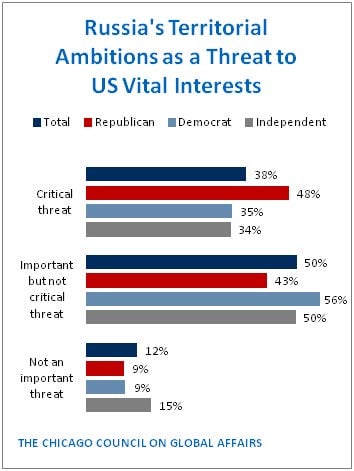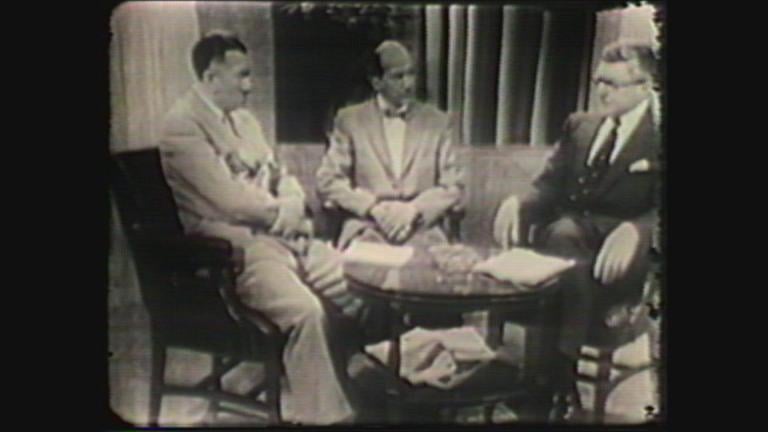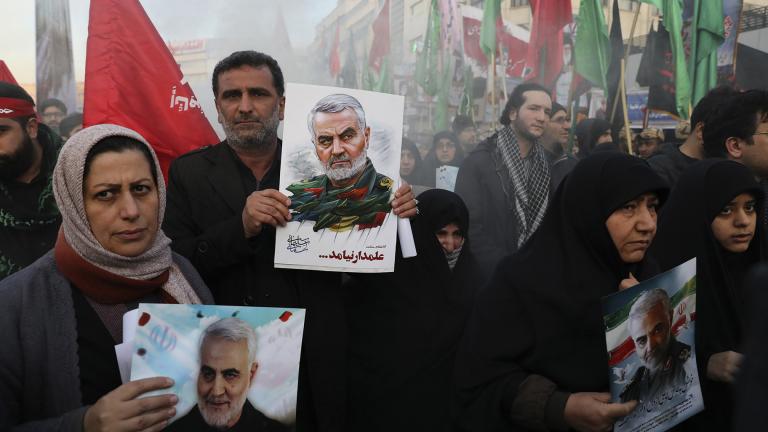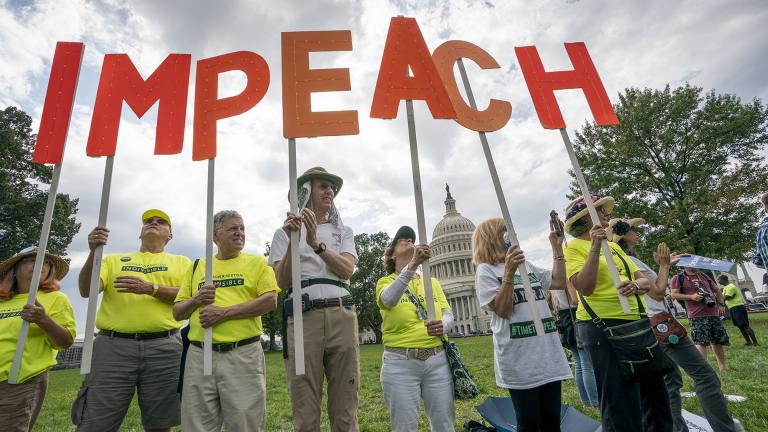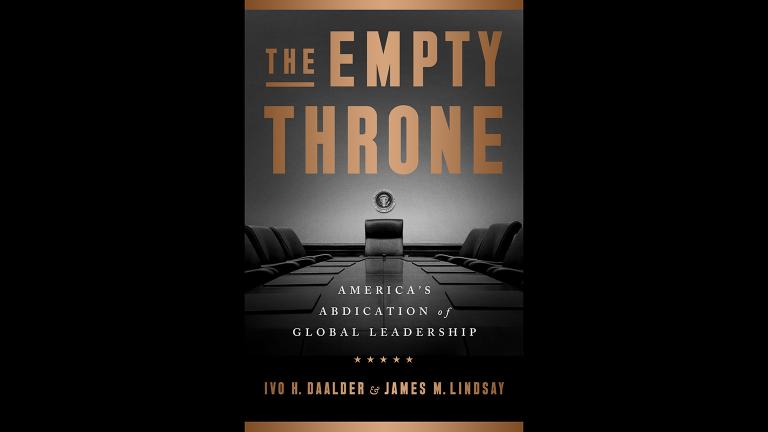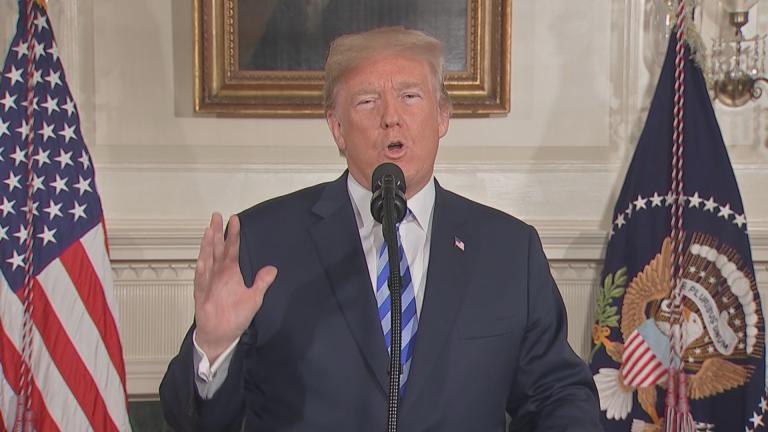President of The Chicago Council on Global Affairs and former U.S. Ambassador to NATO, Ivo H. Daalder, joins us to discuss the NATO Summit Meeting of Heads of State and Government held in Newport, Wales, United Kingdom this week.
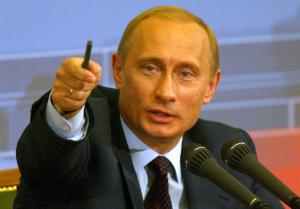 Russian Invasion of Ukraine
Russian Invasion of Ukraine
“Russia has invaded Ukraine,” Daalder wrote on his Financial Times blog. “We can debate the reasons. But we can no longer debate the fact. Nor can we stand by and do nothing.” He cited examples of Russian artillery firing from inside Ukrainian borders and captured Russian troops admitting their mission was to disrupt Ukrainian efforts to regain control of its territory.
He called for both the United States and Europe to act. “President Obama has ruled out American force, and I think there is a general consensus that direct military is not the correct response—probably the right judgment,” he said in a recent Chicago Tonight interview. “Further policy options to provide the Ukraine with assistance, intelligence, and machinery—essentially providing protective measure for the country—I look favorably on this.”
Cyber Security
In an interview with the New York Times, Daalder said NATO wasn’t ready to think about cyber attacks in 2010. “It’s a measure of how far we’ve come on this issue that there’s now a consensus that a cyber-attack could be as devastating as any other kind of attack, maybe even more so,” he said.
But he admits NATO has a “pretty basic” ability to defend against attacks, with no ability to achieve a “forward defense” to shut down an attack. In a recent interview with Chicago Tonight, Daalder said NATO is in agreement that a cyber attack could require a military response.
ISIS
Regarding President Obama’s recent remarks on U.S. strategy for dealing with ISIS, Daalder said the comments were artfully said and taken out of context.
“We need an integrated strategy for the region and globally,” he told Chicago Tonight . “And that involves military and non-military forces working together in the region.
Drone Strikes
On the topic of drone strikes carried out by the Obama administration, and its effect on the country’s reputation, Daalder said, “I think the issue is what is it we’re trying to do? To achieve?”
His belief is the means are less important than the goals. Since Sept. 11, 2001, U.S. policy has been going after individuals who pose a legitimate threat and bringing them to justice without causing great collateral damage, according to Daalder.
On Tuesday, Sept. 2, RunningNumbers.org published “American Public Opinion on NATO,” by Ivo H. Daalder. Read the article below.
American Public Opinion on NATO
By Ivo H. Daalder, president, The Chicago Council on Global Affairs
NATO Leaders meet in Wales this week for what will be the most important Summit meeting since the end of the Cold War. Russian actions in Ukraine pose a fundamental challenge to European security—and thus a challenge to the North Atlantic Treaty Organization. What do Americans think about NATO, the threats to security, and the steps the US might take to uphold its defense commitments on the other side of the Atlantic? In the new 2014 Chicago Council Survey, the American public offers broad support for the U.S. commitment to NATO, views Russia increasingly unfavorably, and worries about Russia’s territorial ambitions. At the same time, support for sending troops to defend NATO countries continues to be relatively weak.
Here’s what Americans had to say about these issues from the 2014 Chicago Council Survey conducted May 6-29.
Americans support for NATO is at highest level in 40 years
Since the first Chicago Council Survey in 1974, majorities have consistently favored maintaining or increasing the U.S. commitment to NATO. Today, such support stands at 78 percent, the highest level in 40 years. As in previous polls, most of this support comes from Americans believing that the U.S. commitment to NATO should remain as it as it is now (66%); an additional 12 percent favor increasing the commitment. Only 7 percent want to withdraw entirely from NATO, and another 12 percent want to decrease U.S commitment.
Opinion of Russia hits post-Cold War low
The strong support of NATO may reflect increased wariness about Russia following Moscow’s annexation of Crimea and support for rebels in Ukraine. American views toward Russia have now dropped to the lowest level since the Cold War. On a scale of 0 to 100, Americans rate Russia a 36 on average in 2014. This is just above the ratings Americans gave to the Soviet Union during the Chicago Council’s Cold War-era surveys of 1978-1986 and is the lowest rating ever given to Russia since the dissolution of the Soviet Union.
At the same time, only a minority of Americans (38%) sees Russia’s territorial ambitions as a critical threat to the vital interests of the United States, though another 50 percent of Americans see it is an important threat. Perhaps as a result, only three in ten support using U.S. troops to come to Ukraine’s defense if Russia invades the rest of that country (30%), though that is an increase of ten points compared to when the question was asked in 1994.
Only a minority would support using US troops to defend NATO’s Baltic members
When asked about the possibility of Russia invading the Baltic countries, only 44 percent of Americans support using U.S. forces to protect “NATO allies such as Latvia, Lithuania, and Estonia.” While low, especially given the commitment to collective defense of the NATO Treaty, current support for using US troops to defend NATO allies is much higher than in the late 1990s. Then, just three in ten Americans (28%) supported using US troops if Russia invaded Poland, which was about to join the Alliance as a new member. Moreover, while higher than in the case of the Baltic states today, in 1994 only a bare majority of Americans (54%) supported using US troops to defend “western Europe” from a Russian invasion.



